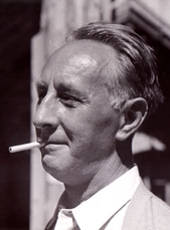

Bohuslav Martinů
Die griechische Passion
Short instrumentation: 3 3 3 3 - 4 3 3 1 - timp(2), perc(3-4), hp, acc, pno, str
Duration: 107'
Übersetzer: Helmut Wagner, Michel Ancey, Karl Heinz Füssl, Brian Large
Dichter der Textvorlage: Nikos Kazantzakis
Libretto von: Bohuslav Martinů
Choir: SATB - Knabenchor
Roles:
Priester Grigoris
Baßbariton / Patriarcheas
Baßbariton / Michelis
Tenor / Kostandis
Bariton / Yannakos
Tenor / Manolios
Tenor / Panait
Tenor / Die Witwe Katerina
Sopran / Lenio
Sopran / Priester Fotis
Baßbariton / 5 kleinere Partien / 1 Sprechrolle
Instrumentation details:
1st flute
2nd flute
3rd flute (+picc)
1st oboe
2nd oboe
3rd oboe (+c.a)
1st clarinet in Bb
2nd clarinet in Bb
3rd clarinet in Bb
1st bassoon
2nd bassoon
3rd bassoon
1st horn in F
2nd horn in F
3rd horn in F
4th horn in F
1st trumpet in C
2nd trumpet in C
3rd trumpet in C
1st trombone
2nd trombone
3rd trombone
tuba
timpani(2)
percussion(3-4)
harp
piano
accordion
violin I
violin II
viola
violoncello
double bass
Martinu - Die griechische Passion
Printed/Digital
Translation, reprints and more

Bohuslav Martinů
Die griechische PassionType: Dirigierpartitur (Sonderanfertigung)

Bohuslav Martinů
Martinů: Die griechische Passion (2. Fassung - deutsch)Type: Partitur
Language: Deutsch
Print-On-Demand

Bohuslav Martinů
Martinu: Griechische Passion for soloists, mixed choir (SATB), children's choir and orchestraOrchestration: for soloists, mixed choir (SATB), children's choir and orchestra
Type: Libretto/Textbuch
Language: Deutsch
Sample pages
Audio preview
Work introduction
Bohuslav Martinů’s opera Die griechische Passion is based on the novel Der wieder gekreuzigte Christus (The re-crucified Christ) by Nikos Kazantzakis. The opera develops the Christian doctrine of “love thy neighbour” ad absurdum, as a group of refugees are driven out of their little Greek village just as the village is putting on a Passion play for Holy Week. The piece is centred on the general question of humanity. The Passion story is robbed of its uniqueness and revealed as a simple precedent for eternal tragedy.
Martinů, who was forced to emigrate from the south of France to the USA in 1940 when Paris fell to the Nazis, had his own experience of the pain of being a refugee. The Greek Passion is considered one of his most coherent and mature scores. For this exciting and vigorous work, Martin developed a tonal language which combined his early musical experiences with elements of Greek folklore, Greek Orthodox liturgy and dance music.
